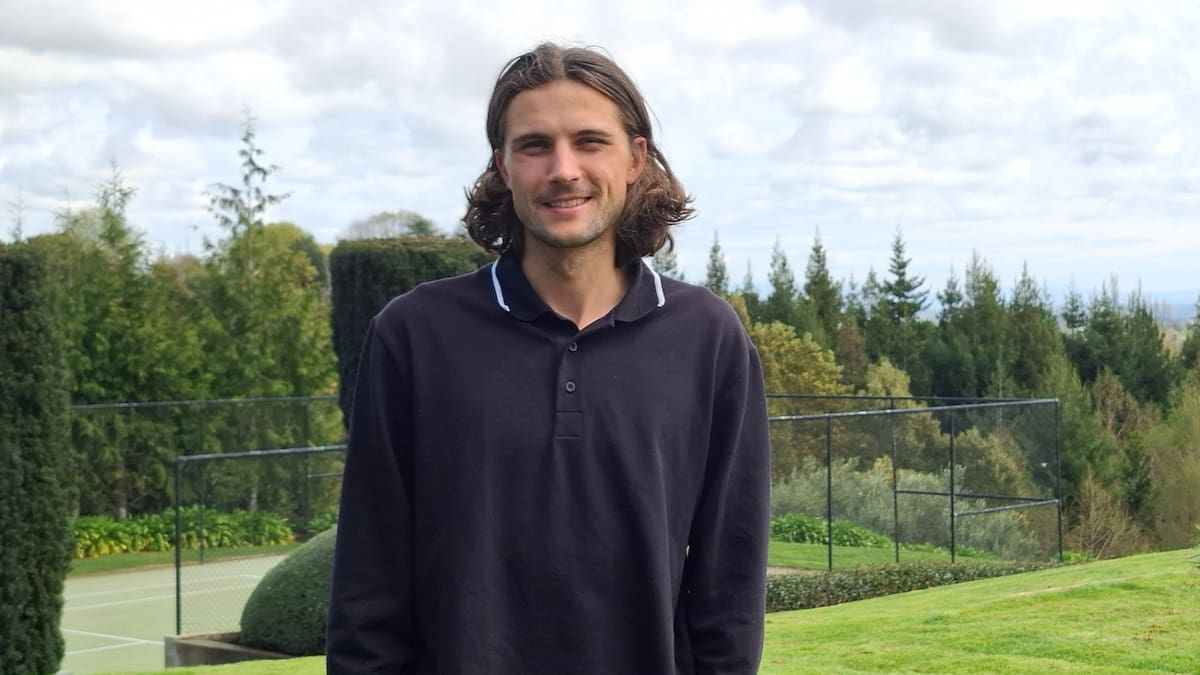The Millrose Games in New York, billed as the world’s premier indoor track meet, and scene of some of his best runs, are on February 1, and the one big opportunity before the defence in Poland a few weeks’ later.
Longer-term are such targets as the Prefontaine Classic in the United States in July, the Commonwealth Games in Scotland next July 23-August 22, and the 2028 Olympic Games in Los Angeles.
He has the New Zealand 3000m steeplechase record at 8m 9.64s, and reckons the eight-minute barrier is achievable, but doesn’t talk world record goals – the record in the current specialist event is 7m 52.11s.
The chances happen when they happen, he says, but as a pretty snappy runner across the distances from 1500m to 5000m, he does have some goals against the clock.
With a one-mile best of 3m 49.09s at the Prefontaine meeting in Eugene, Oregon, last year, he is just one-hundredth of a second from former world record holder John Walker’s New Zealand time, 3m 49.08s, run in 1982.
Geordie Beamish celebrates winning the men’s 3000m steeplechase final during the World Athletics Championships in Tokyo on September 15. Photo / Jewel Samaf.
At 5000m, he has the national men’s record of 13m 4.33s, with the 13-minute barrier somewhere on the radar.
In the back of the mind, too, is the 1500m, the flat race etched into the New Zealand psyche, based on the black singlet’s Olympic Games history in the event, the gold medals of Jack Lovelock in Berlin in 1936, Peter Snell in Tokyo in 1964, and Walker in Montreal in 1976.
There is no steeplechase on the Hastings Potts Classic programme, although meet manager Richard Potts briefly pondered the possibility of having Beamish on hand, even to just shake hands and sign a few autographs.
As a youngster, Beamish had not seen himself necessarily as some sort of world champion, his sports having revolved mainly around cricket and hockey in the preparatory years at Lindisfarne College, in Hastings.
He was an opening batsman, recalling: “I think I hit 96 once.”
Beamish won the World Championships 3000m steeplechase final in a perfectly judged race, but with a comparatively slow time of 8m 33.88s.
His Tokyo win came with his now-famed “kick”, running down two-time Olympic champion Soufiane El Bakkali, of Morocco, in the last strides, in a moment that might have reminded some of Kiwi’s last-to-first performance to win the 1983 Melbourne Cup.
But that “kick” has been known for years now, notably since ending American Craig Engel’s premature celebrations with a last strides one-mile win at the Prefontaine meeting in 2021.
He’s not having a complete break at home, because top runners can’t, physically and otherwise, afford not to run regularly, so long as the legs are in the right shape.
“I’ll try to get along to the [regional] sports park, just to say Hi,” before Tuesday’s first club night for the Hastings Athletics Club this week.
He sees the strength and potential of New Zealand athletics, as highlighted by the performances of himself, high jumper Hamish Kerr, throwers including Hawke’s Bay discus exponent Nick Palmer, and has a tip for any youngster who thinks they might have the talent.
“Surround yourself with like-minded people that will keep you in it,” he said, warning not to give up when beaten, and not to give up eating, with “heaps” of carbohydrates.
“It takes quite a lot of time to reach this level,” he said. But I still lose a lot more than I win.“
Doug Laing has been a reporter in Hawke’s Bay for more than 40 years of a 52-year career in journalism, covering most aspects of news, including sports.

